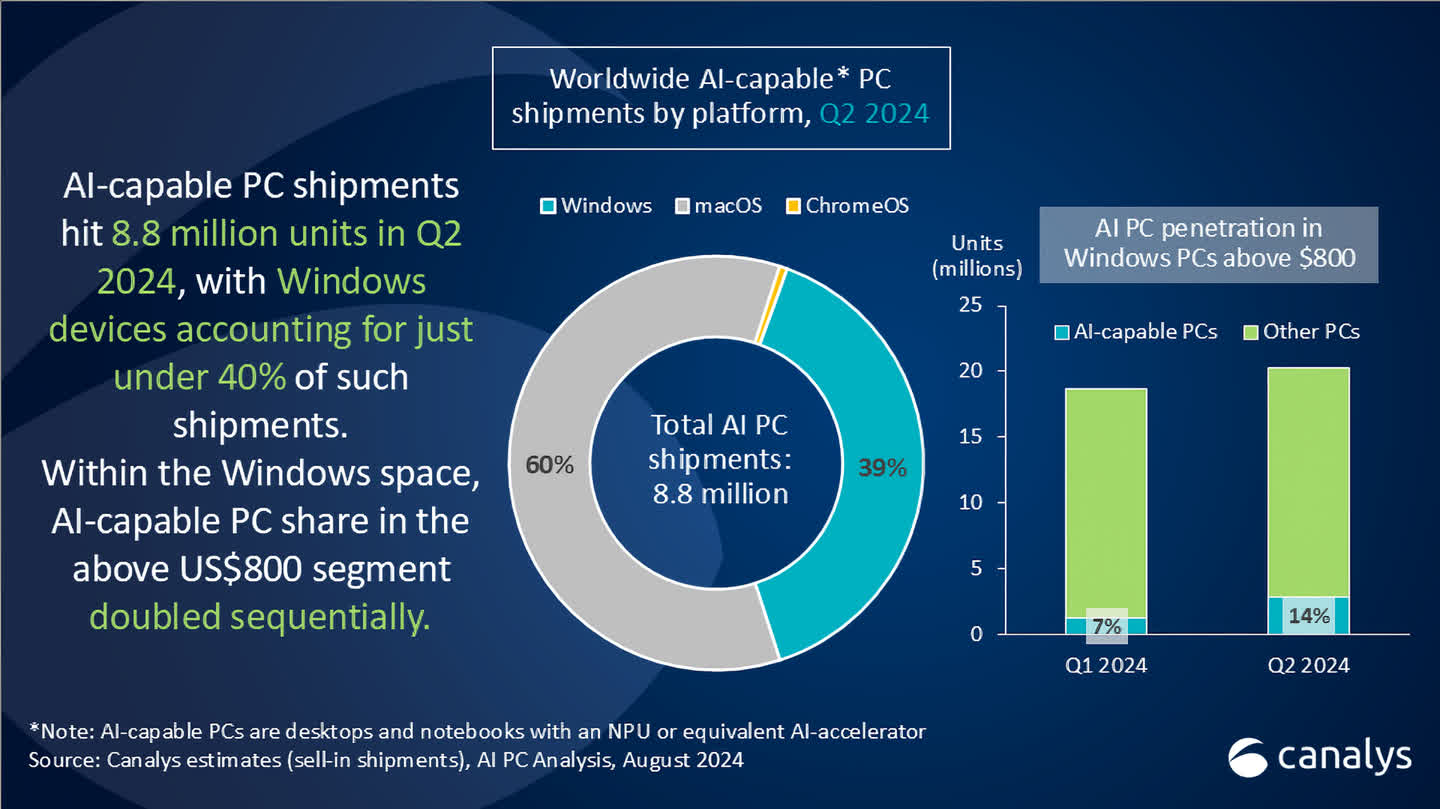What just happened? AI-enabled PCs are slowly but surely infiltrating the market. According to the latest data from Canalys, 8.8 million AI-capable PCs shipped worldwide in the second quarter of 2024. That equates to a small but meaningful 14 percent of all laptops and desktops shipped during the three-month period ending June 30.
The market analyst firm said that among AI PCs, 60 percent were Macs utilizing Apple's M-series chips with the Neural Engine. Windows made up the remaining majority of the share (39 percent), with AI-capable PCs running Microsoft's operating system growing 127 percent sequentially.
Among them, Lenovo was the leading PC vendor during the quarter thanks to entries like the Yoga Slim 7x and the ThinkPad T14s, with HP also making its presence felt with the Omnibook X 14 and EliteBook Ultra G1. Dell was in the mix as well, launching Copilot+ PCs across its Latitude, Inspiration, and XPS lines.
Even with all the new Windows-based AI PCs now available, shipment volumes in the quarter were relatively low due to the fact that most of the new machines arrived at the tail end of the period.
Canalys defines an AI PC as a notebook or desktop with a dedicated chipset or block to run AI workloads locally rather than in the cloud.
Principal Analyst Ishan Dutt said that with the launch of Copilot+ PCs in June utilizing Qualcomm Snapdragon X chips, Intel ramping up its delivery of Core Ultra chipsets, and AMD having announced its Ryzen AI 300 series laptop CPUs, the foundation for strong AI-capable PC shipment growth has been set.
The firm further noted that the industry is on track to ship roughly 44 million AI PCs this year and as many as 103 million units next year.
What are your thoughts on AI PCs? Do you have any plans to go out of your way to ensure your next machine is capable of local AI processing, or would it just be a secondary benefit to other, more important features?
Image credit: Cottonbro Studios

